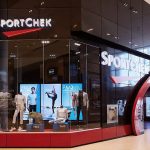Fairview Capital Investment Management, owner of 2.6% of the shares of Saucony, announced that it intends to vote against the proposal to sell Saucony to Stride Rite Corporation because the $23 per share sale price is inadequate.
The firm stated that its reasons are as follows:
- Saucony shareholders will receive zero control premium and none of the projected cost-saving synergies. Stride Rite's 12% share price increase upon announcement of the deal supports this assessment. Based on the midpoints of Saucony's 2005 guidance and Stride Rite's expected synergies, Stride Rite is paying just 10x net income (cash-adjusted) and 5.5x EBITDA. Excluding synergies, the $23 offer price implies valuation multiples of 14x net income (cash-adjusted) and 7.5x EBITDA, which we view as an appropriate stand-alone trading valuation. The inclusion of a 25% control premium and one-half of the synergies would imply a fair acquisition price of approximately $33.
- The strategic review process did not include a special committee of independent directors. Saucony's significant insider ownership and dual-class share structure create numerous potential conflicts of interest. Without the supervision of an independent committee, this process may have favored the interests of management over those of public shareholders.
- Saucony rejected a $25 cash offer in April when the Stride Rite bid at that time was $23. According to the preliminary proxy, the Board rejected the higher offer “because, among other things, the other bidder's bid imposed a requirement that our management rollover and subject to continued vesting a portion of their options and potentially other equity.” We believe the higher offer may have been more favorable for public shareholders.
- John Fisher and Charles Gottesman will receive $5.3 million of “executive benefits” payments, which will effectively pay them $26 for each of their shares.
- Management's preference for a cash transaction may have deterred some public company bidders. We believe Saucony may have been able to achieve a higher price if it entertained stock offers from Stride Rite or other bidders.
- Management's growth objective may have discouraged some bidders who might have been willing to pay more for Saucony but who would not commit to investing heavily in the business after the acquisition. Management has been explicit in its press releases and conference calls that it placed a high priority on finding a buyer that would invest in the business to accelerate growth. In a cash transaction, the buyer's post-acquisition intentions have no bearing on the value to selling shareholders.
- Saucony may not have considered the value of remaining independent. The preliminary proxy briefly mentions the evaluation of a leveraged recapitalization, but does not say whether this analysis was ever completed. We believe that, for example, were Saucony to borrow $45 million (2.5x EBITDA) and distribute this along with its cash on hand at June 30, it could fund an $11.50 dividend. We estimate that such a transaction would reduce Saucony's projected 2005 diluted earnings per Class B share to approximately $1.00, assuming a full-year impact for such a transaction. Using a 14x multiple, we believe such a transaction would deliver the equivalent of approximately $25.50 of value to holders of Class B shares, while allowing shareholders to retain ownership and benefit from future value creation.
- Chestnut Securities, the financial advisor engaged by Saucony's management, apparently has not completed a transaction of this nature in its ten-year existence. The only evidence we can find of Chestnut's investment banking activity is a few small venture capital deals.
- Chestnut's fairness opinion undervalues Saucony. In its comparable company trading values analysis, Chestnut applies a 19.7% discount to Saucony's valuation based on historical trading patterns. We believe this is inappropriate because the conditions that led to the discount in the past (Saucony's turnaround in 2001 and 2002 and its dual-class share structure) are not relevant to an acquisition valuation today. In the discounted cash flow analysis, we believe the 15% to 19% range of discount rates used by Chestnut is much too high and is out of line with current capital markets conditions. Finally, Chestnut's valuation analysis does not consider the value of the cost-saving synergies that Stride Rite expects to achieve, and that we believe should be shared with Saucony shareholders.
The statements herein are not intended to be a solicitation of any proxy. Such statements are only an announcement of how Fairview Capital Investment Management, LLC intends to vote with respect to the transaction discussed herein and the reasons therefor.
Through client accounts for which it serves as investment adviser, Fairview Capital Investment Management, LLC beneficially owns 34,100 shares of Saucony's Class A Common Stock and 142,862 shares of its Class B Common Stock.















